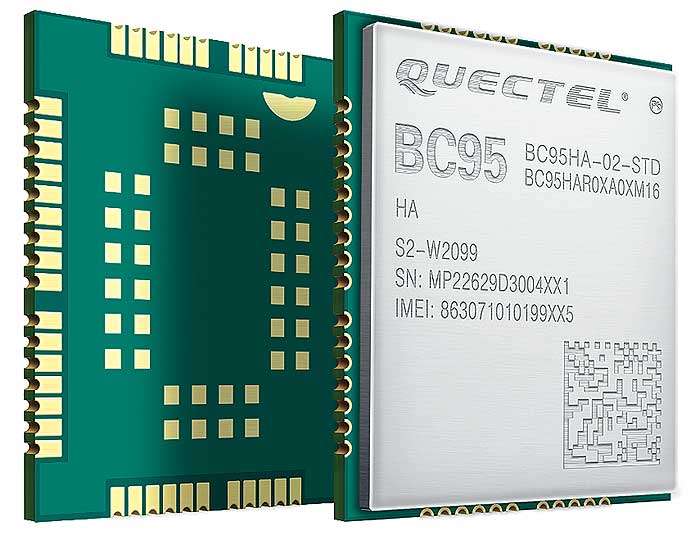 Quectel’s BC95 Profile
Quectel’s BC95 Profile
Quectel´s cellular NB-IoT module combines easy, affordable, global connectivity with over 10 years’ battery life for low data rate IoT applications. Quectel is the first Chinese manufacturer with a 3GPP Release 13 module available in the market.
Quectel’s BC95 is a high-performance NB-IoT module with extremely low power consumption. The ultra-compact 19.9 × 23.6 ×2.2mm profile makes it a perfect choice for size sensitive applications. Designed to be compatible with Quectel GSM/ GPRS M95 module in the compact and unified form factor, it provides a flexible and scalable platform for migrating from GSM/GPRS to NB-IoT networks.
Quectel’s BC95 NB-IoT module supports GSM 900MHz/850MHz /800MHz and it will support 1800MHz/ 700MHz in the future. Reserved for eSIM, it is easier for integrators and designers to cooperate with operator to develop its products.
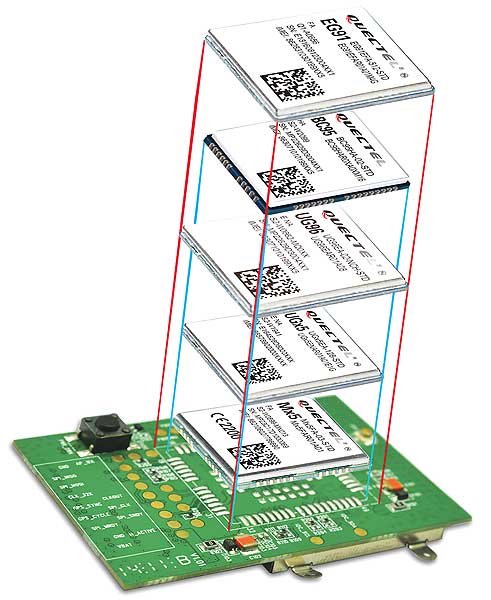 It is also compatible with Quectel GSM/GPRS module M95, which is convenient for customer to migrate from GPRS to NB-IoT.
It is also compatible with Quectel GSM/GPRS module M95, which is convenient for customer to migrate from GPRS to NB-IoT.
BC95 adopts surface mounted technology, making it an ideal solution for durable and rugged designs. The low profile and small size of LCC package allow BC95 to be easily embedded into low-volume applications and provide reliable connectivity with the applications.
Due to compact form factor, ultra-low power consumption and extended temperature range, BC95 is the best choice for a wide range of M2M applications, such as smart metering, smart city, security, asset tracking, agricultural and environmental monitoring and more.
• Key Benefits
– Compact-sized NB-IoT module
– Ultra-low power consumption
– Super high sensitivity
– LCC package makes it easy for large volume manufacturing
– Compatible with Quectel GSM/GPRS module, easy for future migration
– Support abundant Internet service protocols
• Compatible with 2G/3G/4G Modules
Quectel’s BC95 module is compatible with Quectel’s GSM/GPRS module M95, UMTS module UG9x and LTE CAT.1 module EG91.
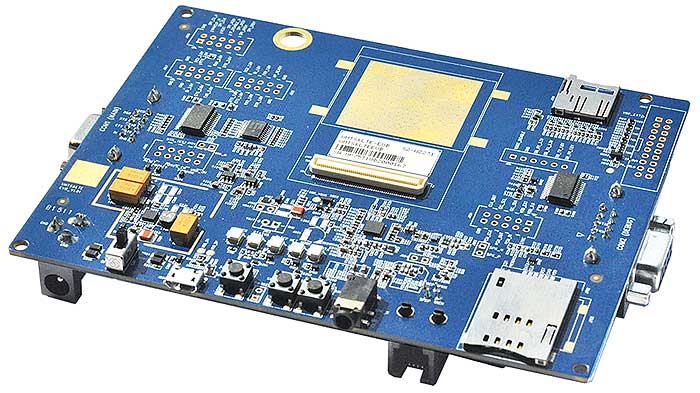
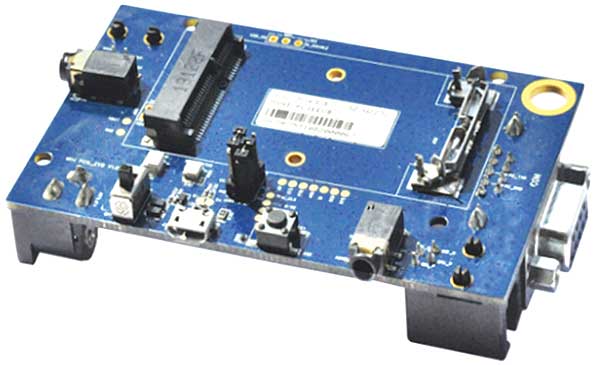 • Evaluation Kit
• Evaluation Kit
Quectel provides you with all kinds of development kit, which can help you learn, evaluate, and use Quectel products easier. Our modules also come with testing adapters that can be plugged into the development kit, the BC95 testing adapter can be connected to the GSM/GPRS/NB-IoT EVB KIT to start the evaluation.
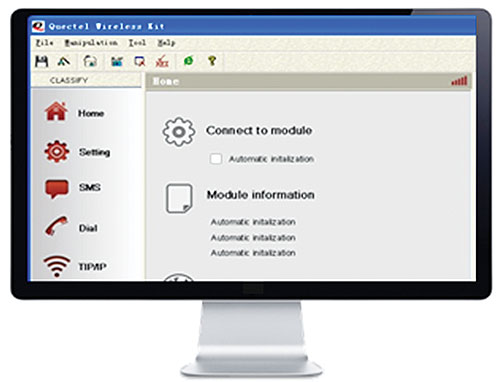 Quectel also offers a GUI tool named QNavigator. It can help customers quickly test Quectel module’s functionality even if they are not familiar with AT Commands.
Quectel also offers a GUI tool named QNavigator. It can help customers quickly test Quectel module’s functionality even if they are not familiar with AT Commands.
First to Receive GCF Certification
Quectel’s NB-IoT BC95-B8 module has recently received GCF certification, the first of its kind around the globe.
The certified module is a variant of Quectel’s NB-IoT BC95 module series featuring an ultra-compact 19.9 × 23.6 ×2.2mm profile LCC package. It allows for easier large-scale manufacturing which has strict requirements on cost and efficiency.
As a forerunner in the NB-IoT field, Quectel launched its BC95 module in 2016, which was among the world’s first NB-IoT modules compliant with 3GPP R13 standards.
Developed based on Huawei’s Hisilicon Boudica chipset, Quectel’s BC95 module features extended coverage, massive connection, low power consumption and low device cost, and is therefore ideal for LPWA (Low Power Wide Area) applications.
Currently, BC95 has been widely applied in smart metering, white goods, street lighting, parking and smoke alarm. In the future, it will continue to empower more applications related with personal life, industry and agriculture, such as asset tracking, pet tracking, electronics, gas detector, machine alarm, irrigation controller etch.
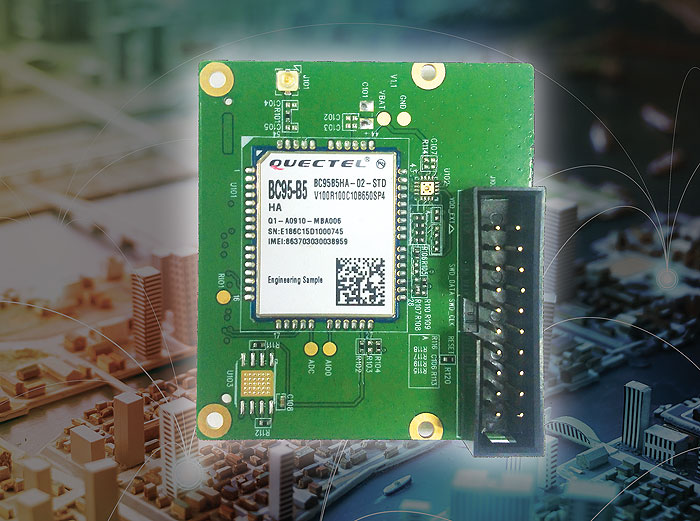 Over the next few years, so-called low power wide area (LPWA) networks could play an important role in connecting a range of devices that need to be, low power and low cost. The following characteristics make LPWA particularly attractive for these devices and applications.
Over the next few years, so-called low power wide area (LPWA) networks could play an important role in connecting a range of devices that need to be, low power and low cost. The following characteristics make LPWA particularly attractive for these devices and applications.
• Low power consumption
• Optimized data transfer that supports small, intermittent blocks of data
• Low Device Unit Cost
• Easy installation of the network
• Licenced Spectrum
• Optimized for low throughput, long or short distance
• Sufficient indoor penetration and extended coverage
The ability of LPWA networks to provide low cost, long battery life and wide area network coverage could mean such networks potentially support up to 7.4 billion connections by 2020, according to Machina Research. LPWA networks could make it feasible for connectivity to be used in many more devices and scenarios, including security alarms, car park spaces, agricultural applications, such as monitoring the wetness and temperature of soil, as well as smart metering, consumer electronics and intelligent buildings.
NB-IoT is One of the Best Solutions for LPWA because of the Following Advantages:
• Improved indoor coverage
• Massive connections
• +20dB better than GSM
• Expected to be 10-year battery life
• 50K connections per cell
Four use case categories for NB-IOT: IOT Appliance, Personal, Public and Industry.
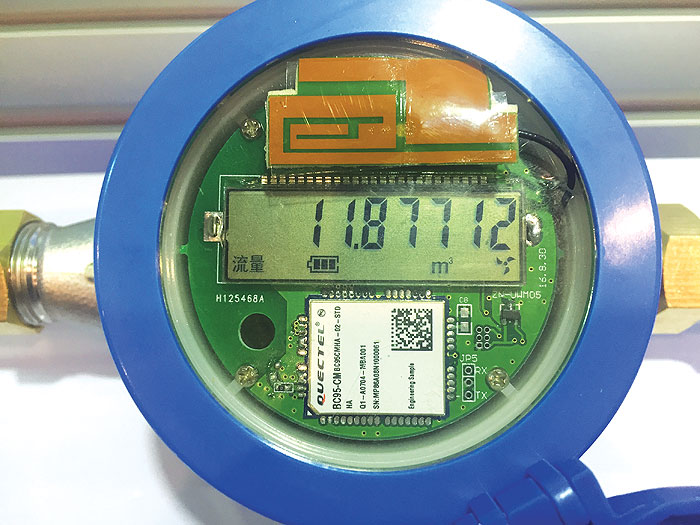 IOT Appliance
IOT Appliance
Management becomes more efficient through improvements in big data analysis. IOT appliance mainly comprises of LPWA applications that aim to provide intelligence for the user through sensors and devices that are found in the local area.
IOT Personal
IOT personal largely features LPWA applications that create a personal area network for the purposes of information exchange for the user. Like wearables, smart bicycles and kids monitoring use cases.
IOT Public
IOT public focuses on LPWA applications that serve the general public. Like smart metering, alarms & event detectors and smart garbage bins.
IOT Industry
IOT industry mainly delivers low power wide area applications that help to improve general enterprise and industrial efficiency, like logistics tracking, asset tracking and industry 4.0.
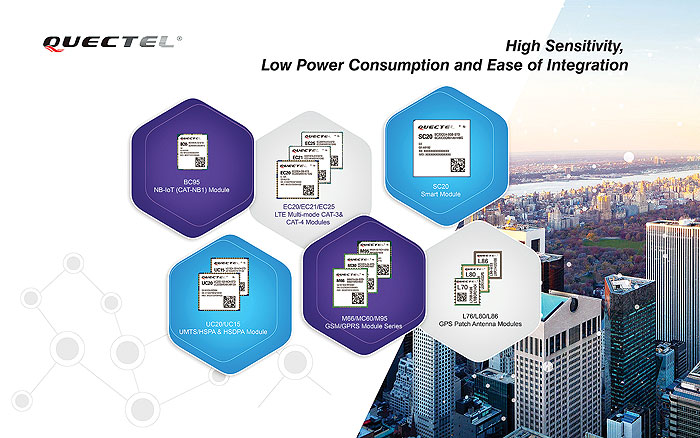 Case study
Case study
First NB-IoT Water Meter Project in China with Quectel’s NB-IoT BC95 Module Inside
At present, water waste is a big issue for many countries. Chinese government commits to revolving this issue. The first NB-IoT commercial network has been deployed in Fuzhou, China on Nov.18. 2016. Quectel’s NB-IoT BC95 module, the China’s first cellular module compliant to the 3GPP Release 13, has successfully transmitted data between water meter companies and the users via NB-IoT commercial network.
Quectel CEO Patrick Qian comments, “I am very proud that Quectel’s BC95 NB-IoT module has been successfully installed in the new generation of smart meter. The benefits of smart water metering are substantial for water conservation, recapturing lost revenue from leaks and theft, and reducing utility operating costs. Cellular technology will play an important role in the growth of the smart water AMI market as more governments and utilities look for reliable, long-lasting solutions that can be deployed quickly and cost-effectively. Quectel will continue to keep innovation and contribute our dedication in building a smart world.”
Quectel’s Comprehensive Product Portfolio
With the rapid development of Internet of Things, the number of connectivity will jump sharply in the next few years.
As a leading global supplier of GSM/GPRS, UMTS/HSPA(+), LTE and GNSS modules, solutions and services, Quectel will provide more unmatched quality wireless modules and help to build a smarter world.
By: Gheorghita Chirculete, Business Development Manager
gigi.chirculete@comet.srl.ro
![]() Comet Electronics
Comet Electronics
www.comet.srl.ro
office@comet.srl.ro



